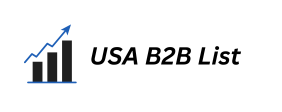A targeted email database is the cornerstone of effective digital marketing. It represents a collection of email addresses from individuals who have shown genuine interest in your products or services. Unlike broad, untargeted lists, a segmented database ensures your messages reach the most receptive audience. This focused approach significantly enhances engagement and conversion rates. Building such a database requires strategic effort and an understanding of your ideal customer. It involves more than just gathering addresses; it’s about connecting with potential clients.
Businesses thrive on meaningful interactions. A quality targeted email database allows for personalized communication. This personalization builds trust and fosters stronger customer relationships. For instance, sending relevant offers to a segmented group yields better results than mass emails. This precision saves marketing resources while maximizing impact. Investing time in developing this asset pays dividends in the long run. It is a vital component for sustainable business growth in today’s competitive landscape. Prioritizing quality over quantity is paramount when compiling these valuable lists.
The Core Benefits of a Targeted Email Database
Harnessing a targeted email database offers numerous advantages for any business. Primarily, it significantly boosts your marketing return on investment (ROI). When your emails land in the inboxes of genuinely interested individuals, the likelihood of them taking action—be it a purchase, a sign-up, or a download—skyrockets. This direct relevance means less wasted effort and more profitable outcomes. Your marketing budget is utilized far more efficiently.
Furthermore, a well-defined database dramatically improves customer engagement. Personalized messages resonate deeply with recipients. They feel understood and valued, leading to higher open rates and click-through rates. This level of interaction strengthens customer loyalty over time. It transforms anonymous contacts into loyal brand advocates. The ability to speak directly to specific needs or preferences is a game-changer. It fosters a genuine connection that transcends transactional interactions. Businesses can build lasting relationships through consistent, relevant communication.
Building Your Targeted Email List: Key Strategies
Creating a robust targeted email list requires careful planning and ethical practices. The most effective method involves attracting subscribers organically through valuable content. Offer compelling lead magnets such as e-books, webinars, or exclusive discounts in exchange for email addresses. Ensure your website features clear, user-friendly opt-in forms. These forms should highlight the benefits of joining your list. Transparency about what subscribers will receive builds trust from the outset.
Content marketing plays a crucial role in attracting the right audience. Develop blog posts, videos, or infographics that address your target audience’s pain points. Promote this content across relevant social media channels and other platforms. Encourage visitors to subscribe for more insights. Segmentation is also vital during the list-building phase. Allow users to choose their preferences or segment them based on their engagement with your site. This ensures future communications are highly relevant. Some businesses might also explore specific contact lists, such as a well-vetted Brother Cell Phone List, for targeted outreach, always ensuring consent and compliance.
Ensuring Data Quality and Compliance for Your Email Database
Maintaining high data quality is non-negotiable for effective email marketing. Outdated or inaccurate email addresses lead to bounces and low deliverability rates. Implement regular list hygiene practices to remove inactive subscribers and correct errors. Tools for email verification can help clean your database proactively. This ensures your messages reach valid inboxes. Poor data quality can harm your sender reputation, impacting future campaign success.
Ethical Data Acquisition and Privacy Standards
Adhering to privacy regulations like GDPR and CCPA is paramount. These laws protect user data and ensure consent for communication. Always obtain explicit consent before adding anyone to your email list. Clearly state how their data will be used. Provide easy opt-out options in every email. Transparency builds trust and avoids legal complications. Ethical data acquisition safeguards your brand’s reputation and ensures long-term marketing viability. Respecting user privacy is not just a legal requirement; it’s a foundation for strong customer relationships. Building a compliant database is an ongoing commitment.
Leveraging Your Targeted Database for Maximum Impact
Once you have a clean and segmented targeted email database, the real work of maximizing its impact begins. Implement sophisticated email marketing campaigns tailored to each segment. Use automation tools to send welcome series, abandoned cart reminders, or re-engagement campaigns. Personalize subject lines and content based on subscriber behavior and demographics. A/B test different elements to optimize open and click-through rates.
Regularly analyze your campaign performance data. Track metrics like open rates, click-through rates, conversion rates, and unsubscribe rates. Use these insights to refine your strategies. Identify which types of content or offers resonate most with different segments. Continuously refine your segmentation based on new data. This iterative process ensures your email marketing efforts remain highly effective and responsive to your audience’s evolving needs.
In conclusion, a targeted email database is an indispensable asset for modern businesses. It drives higher engagement, boosts conversions, and fosters lasting customer relationships. By prioritizing ethical acquisition, meticulous data quality, and smart segmentation, you can transform your email marketing into a powerful engine for sustained growth. Invest in building and nurturing this vital resource.
model
STOP
